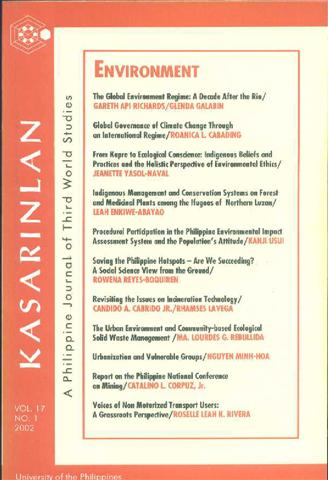Voices of Non-Motorized Transport Users: A Grassroots Perspective
Abstract
The role of the poor members of the society is often down played in the process of urban development planning. Rivera observes that many transport policy decisions fail to incorporate the collective sentiments of the public; they are rarely subjected to the process of genuine and democratic consultation. The paper calls for the embedding of the grassroots perspective into the study of the World Bank-sponsored Marikina Bikeways Network Project. To accomplish this, several dimensions were considered: socio-economic profile of cyclists, their origins and destinations, assessment of cyclist's attitudes and needs, problems in using the bicycles, among others. The cyclists' appreciation of the benefits of the bikeways network necessitates the institutionalization of a cycling policy that is responsive to their needs. The study highlights the environmental advantages of cycling and its viability as an alternative to motorized transport.
Published
2008-09-17
Section
Research Reports
Keywords
Cycling; Alternative Transportation; Transportation Policy;
By submitting a manuscript, the authors agree that the exclusive rights to reproduce and distribute the article have been given to the Third World Studies Center.



